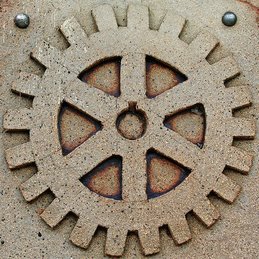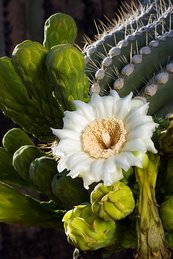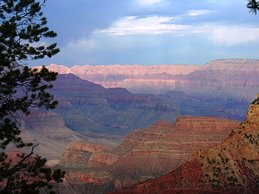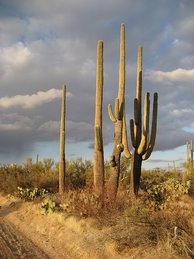I am sure most of you know that the Japanese have close to the longest life span of any other country's citizens (79 and 86 for men and women respectively). The United States, on the other hand, is ranked 43rd in life expectancy compared to other countries. With this incredible opportunity through Rotary International to travel in Japan for five weeks, I made it a mission to help my fellow Americans live longer by discovering the secret(s) to Japanese longevity.
From my observations of Japanese lifestyle and culture over nine days, I have made some very important scientific discoveries never before revealed to Americans (footnotes omitted). I have asked many Japanese why they think they live so long. Their response is typically first, surprise and denial, but this is usually followed up by some variation of "diet". These responses were confirmed by the following scientific findings. First, vegetables are a MAJOR food group here. Try corn on the cob, followed by a salad with fresh tomatoes and broccoli, rounded out by pickled pickles and other pickled vegetables with a side dish of no less than six kinds of mushrooms. This is your breakfast. *It should be noted that pickled vegetables are a hot item in Japan (about as popular as pizza is in America). They make an appearance at just about every meal (I literally cannot think of a meal I have had so far in which it was not served). Because of that, all things pickled are at the top of my list for what Americans must start eating more of. A very close second is white steamed rice. Rice is also present for every meal in some form or another. It is mixed with natto (more on that later), raw eggs, fish, vegetables, tofu, anything and everything under the red sun. Third would be natto, or fermented soy beans. This stuff sells like hot cakes in the supermarkets - entire rows upon rows of shelves are dedicated to this mysterious substance. It is definitely an acquired taste and not one that I plan to acquire anytime soon. Just the sight of the fermented soy beans dripping their strangely gooey fermented juices from your chopsticks is enough to stop most Americans in their tracks from actually putting it into their mouth. However, the smell will stop those who are not dissuaded by the sight. Being the intrepid traveler that I am, however, I was not dissuaded by either. In traveling, I try to live by the philosophy that what does not kill you will likely cause some needed growth. After trying natto on several occasions, I must unfortunately admit that I did not grow anything but nauseas from the experience. Your experience will hopefully be different than mine and you will live much longer than I. I am happy for you. The last and most surprising dietary finding I made is that years will be added to your life by eating many foods raw (fish, eggs, tofu and the like), rather than good old fashioned country fried style.
On a non-dietary note, I have a few brief observations. You will be shocked to hear that the expensive potions and lotions that we buy because it was made with fresh water and dried sand that came from the depths of the ocean in Kerala, India or acacia fruit picked by flying tree monkeys in Brazil is actually not necessary. In Japan, simply being clean tops the list of non-dietary recommendations for living to a spry 85 (my studies confirm that being clean will also keep you looking at least 20 years younger). In Japan, Americans time honed "tradition" of using our hands or a loofah to wash oneself is about as helpful as not washing at all. Bathing is a serious business here. You may have to call on your parents or grandparents for help on this, but the Japanese use these things called washcloths that you can apparently clean yourself quite well with. I admit that I always thought a washcloth was of no real use and was just something dainty to set out for guests. In Japan, however, a "washcloth" can be over two feet long and is used in a very detailed minute scrubbing of every body part as if it was covered in invisible dirt. This part can take an hour or more. Then you are ready for a bath in hot, hot water. Then, off to work or to bed, depending on whether it is morning or evening. As I said, the Japanese do not joke about their bathing rituals. For some this ritual occurs on that large of or a slightly smaller scale every time they come home.
Also, another significant non-dietary finding regarding longevity (although this one was not at all surprising) is that leaving your shoes by the door and then wearing slippers that stay in the bathroom and other pair for other parts of the home is essential. Obviously the same holds true for the office. See herein at 2, footnotes omitted. Finally, putting rocks in your pillow to sleep on at night is good in the summer and can add many years to your life. Sleeping directly on the floor is recommended year round. *However, I must note that many of the Japanese I have met indicate that "all Japanese" have neck and back pain. I doubt there is any correlation between the two.
My final words of wisdom of the topic of longevity: drinking beer does not have a negative impact. Neither does smoking. Sleep is not necessary. You will be happy to hear that not exercising has no effect whatsoever. Laughing does wonders, as does smiling, being polite and respectful of your elders, and singing large quantities of karaoke. Surprisingly, public displays of affection are not necessary to live to 85, but kindness and generosity are. SLW
(Cecile finally let me write a blog). :)
Subscribe to:
Post Comments (Atom)






































2 comments:
Hi Sara,
Great Blog. I love how you put everything into a story. Keep up the writing and have lots of fun.
Take care,
Rebecca
Hey girl! Love your bog. I keep checking up on you because you make it impossible for me to not worry... that is until I see you smiling in so many pictures. Great to see you happy and enjoying your trip. It appears you are in the company of great people. Keep posting!
Love ya! Heather
Post a Comment